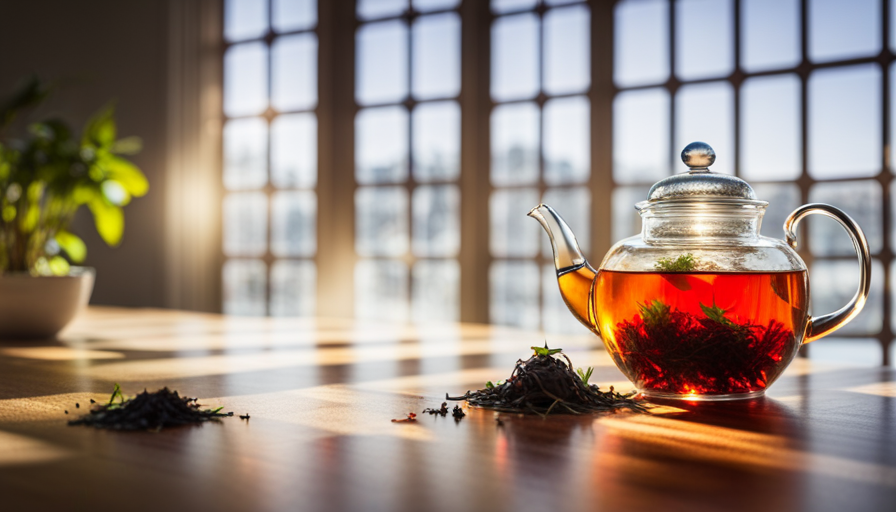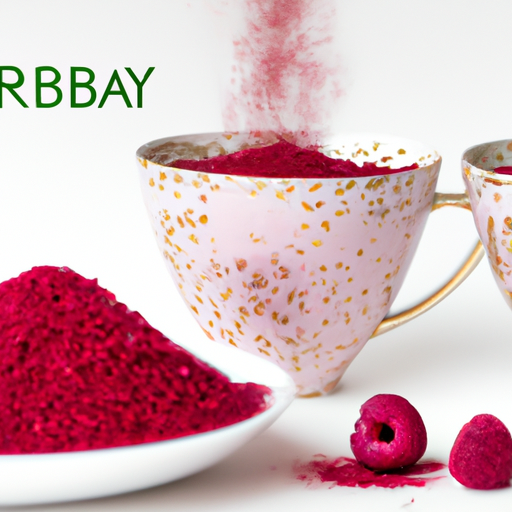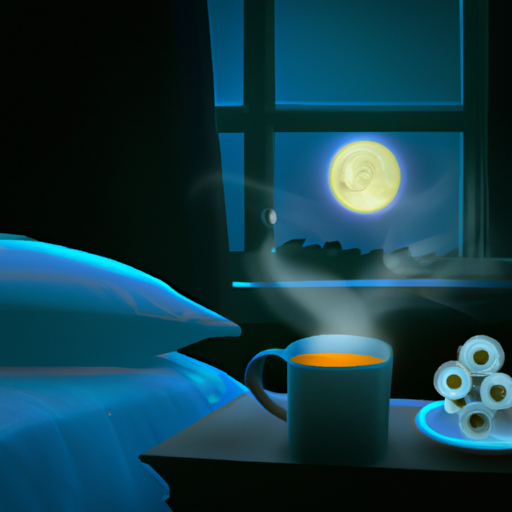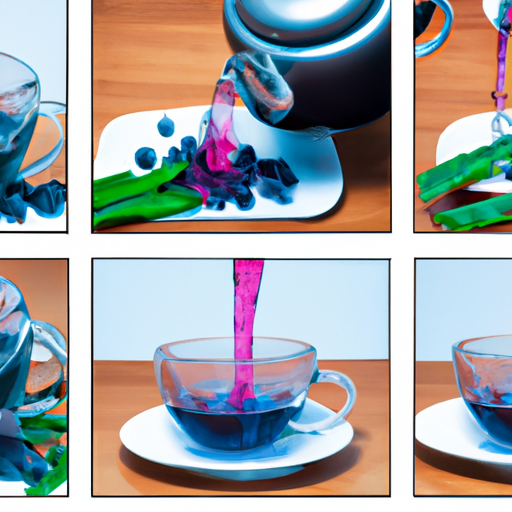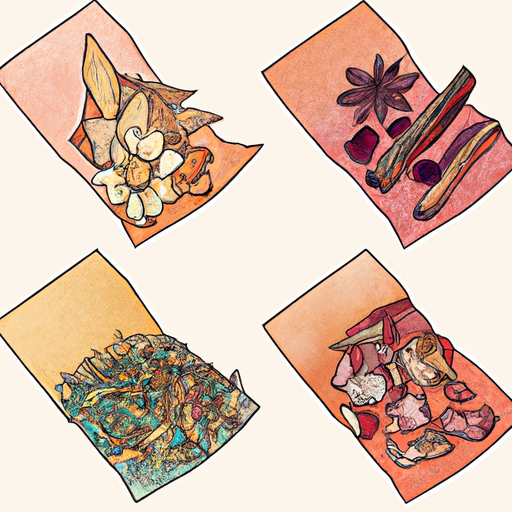In a world filled with busy schedules and never-ending to-do lists, it can be difficult to find moments of relaxation and peace. For many people, a hot cup of herbal tea is the ideal way to relax and rejuvenate. But have you ever stopped to consider how much caffeine might be hidden in your calming drink?
As the old saying goes, ‘Don’t judge a book by its cover.’ Similarly, don’t judge a tea by its lack of traditional tea leaves. Herbal tea, despite its name, may not always be devoid of caffeine. In this article, we will dive into the truth about caffeine in herbal tea, exploring the different types of herbal teas and their caffeine content.
So, whether you are a tea connoisseur looking to switch up your caffeine intake or simply curious about what you are sipping on, join me as we uncover the hidden secrets of caffeine in herbal tea.
Key Takeaways
- Herbal tea is a popular choice for relaxation and offers various health benefits.
- Herbal teas do not contain caffeine, making them a good option for those looking to limit their caffeine intake.
- Different types of herbal teas have unique health benefits, such as chamomile tea for calming effects and peppermint tea for digestion.
- Some herbal teas, like yerba mate and guayusa, contain natural caffeine and can provide an energy boost.
Understanding Herbal Tea
Herbal tea is a great way to relax and unwind after a long day, with its soothing and calming properties. Not only does it taste delicious, but it also offers various health benefits.
Herbal tea is made by steeping herbs, flowers, or other plant materials in hot water. It doesn’t contain any caffeine, making it a perfect choice for those looking to limit their caffeine intake.
One of the great things about herbal tea is that there are so many different varieties to choose from, each with its own unique health benefits. For example, chamomile tea is known for its calming effects and can help with insomnia and anxiety. Peppermint tea is great for digestion and can relieve stomach discomfort. Ginger tea is known for its anti-inflammatory properties and can help with nausea and indigestion.
When it comes to brewing herbal tea, there are a few different methods you can try. One common method is to steep the herbs in hot water for about 5-10 minutes. This allows the flavors and beneficial compounds to infuse into the water. Another method is to use a tea infuser or tea bag, which makes it easier to strain the herbs after steeping.
Now, let’s dive into the truth about caffeine in herbal tea.
The Truth About Caffeine in Herbal Tea
Contrary to popular belief, there’s a misconception regarding the amount of caffeine present in herbal tea. While it is true that most teas derived from the Camellia sinensis plant, such as black, green, and white tea, naturally contain caffeine, herbal teas are caffeine-free. This is because herbal teas are made from a variety of plants other than Camellia sinensis, such as herbs, flowers, fruits, and spices.
To better understand the caffeine content in herbal tea, let’s take a closer look at the different types of herbal teas available. Chamomile tea, known for its calming properties, is made from dried chamomile flowers and contains no caffeine. Peppermint tea, with its refreshing taste, is made from peppermint leaves and is also caffeine-free. Similarly, hibiscus tea, made from dried hibiscus petals, is free from caffeine.
Drinking herbal tea offers numerous benefits. It can help with relaxation, digestion, and even provide antioxidants. Additionally, herbal teas are often used for their medicinal properties, such as soothing sore throats or easing menstrual cramps.
In the next section, we will explore herbal teas with negligible caffeine, which may include some unique blends that combine herbs and Camellia sinensis.
Herbal Teas with Negligible Caffeine
If you’re looking for a delightful and soothing beverage that won’t keep you up at night, there are plenty of herbal tea options with barely any caffeine. Caffeine-free herbal teas not only provide a calming experience but also offer various health benefits. Here are three popular herbal teas that are completely caffeine-free:
-
Chamomile Tea: Chamomile is well-known for its calming properties and is often used to promote relaxation and improve sleep quality. It’s also believed to have anti-inflammatory and antioxidant effects, which can support overall well-being.
-
Peppermint Tea: Peppermint tea is refreshing and invigorating, making it a popular choice for those seeking a caffeine-free pick-me-up. It’s known for its soothing effects on the digestive system and can help relieve symptoms such as bloating and indigestion.
-
Rooibos Tea: Rooibos tea, also known as red bush tea, is naturally caffeine-free and has a rich, earthy flavor. It’s packed with antioxidants and may have anti-inflammatory properties. Rooibos tea is often enjoyed for its potential benefits in supporting heart health and improving skin conditions.
These caffeine-free herbal teas offer a wide range of flavors and benefits without the stimulating effects of caffeine. However, if you’re looking for herbal teas with moderate caffeine content, the next section will provide more information.
Herbal Teas with Moderate Caffeine
Get ready to give yourself a gentle energy boost with these moderately caffeinated teas that’ll keep you feeling refreshed and alert throughout the day.
While herbal teas are generally known for being caffeine-free, there are a few varieties that contain moderate amounts of caffeine. One such tea is Yerba Mate, made from the leaves of the South American holly tree. Yerba Mate is known for its stimulating effects and is often used as a natural alternative to coffee.
Another herbal tea with moderate caffeine content is Guayusa, derived from a tree native to the Amazon rainforest. Guayusa is rich in antioxidants and provides a smooth, sustained energy without the jitters or crashes associated with coffee.
Both Yerba Mate and Guayusa offer numerous benefits, including improved focus, enhanced mental clarity, and increased metabolism. So, if you’re looking for a herbal tea that can provide a gentle pick-me-up without the side effects of caffeine, these moderately caffeinated options are worth exploring.
Now, let’s move on to the next section and discover herbal teas with high caffeine content.
Herbal Teas with High Caffeine
Prepare yourself for an invigorating jolt of energy as you indulge in the potent and stimulating brews of these high-caffeine herbal infusions. While most herbal teas are known for their calming properties, there are a few exceptions that can give you a boost of energy. These herbal teas contain natural substances that can increase your energy levels, thanks to their higher caffeine content.
Caffeine is a natural stimulant that affects the central nervous system, helping to increase alertness and reduce fatigue. When consumed in moderate amounts, it can provide a temporary energy boost and improve focus. While herbal teas are generally considered caffeine-free, certain varieties like yerba mate and guayusa contain naturally occurring caffeine. These high-caffeine herbal infusions can help you stay awake and alert throughout the day.
It’s important to note that the effects of caffeine on the body can vary from person to person. Some individuals may be more sensitive to its stimulating effects, while others may not feel a significant difference. Additionally, consuming too much caffeine can lead to side effects such as restlessness, increased heart rate, and difficulty sleeping.
In the next section, we’ll explore how to determine the caffeine content in herbal tea without relying on specific steps.
Determining Caffeine Content in Herbal Tea
One interesting statistic to consider is that the caffeine content in herbal teas can vary significantly depending on the type of herb used. This is because different herbs contain different levels of caffeine.
To determine the caffeine content in herbal tea, there are several methods of caffeine extraction that can be used. These methods include liquid-liquid extraction, solid-phase extraction, and supercritical fluid extraction. Each method has its own advantages and disadvantages, but they all aim to separate the caffeine from the other components of the tea.
Here are four important points to consider when determining the caffeine content in herbal tea:
-
Different herbs have different levels of caffeine: Some herbs, such as yerba mate and guayusa, contain high levels of caffeine, while others, like chamomile and peppermint, are caffeine-free.
-
Caffeine extraction methods: Liquid-liquid extraction involves using a solvent to extract caffeine from the tea, while solid-phase extraction uses a solid material to trap the caffeine. Supercritical fluid extraction uses a supercritical fluid, such as carbon dioxide, to extract the caffeine.
-
Caffeine content varies within herbal teas: Even within the same type of herbal tea, the caffeine content can vary depending on factors such as the growing conditions and processing methods.
-
Health benefits of caffeine in herbal tea: Caffeine in herbal tea can provide various health benefits, such as increased alertness, improved cognitive function, and enhanced exercise performance. However, it’s important to consume caffeine in moderation and be aware of its potential side effects.
Overall, understanding the methods of caffeine extraction from herbal tea and the health benefits associated with caffeine can help individuals make informed choices when selecting herbal teas.
Frequently Asked Questions
Are there any potential side effects of consuming herbal teas with high caffeine content?
There can be potential side effects of consuming herbal teas with high caffeine content. It’s important to consider the recommended daily caffeine intake, as exceeding it can lead to negative health effects. However, herbal teas also offer potential health benefits, such as antioxidant properties and stress relief. It’s advisable to be aware of the caffeine content in herbal teas and consume them in moderation to avoid any potential side effects.
Can herbal teas with moderate caffeine content be enjoyed in the evening without interfering with sleep?
Herbal teas with moderate caffeine content can still interfere with sleep if consumed in the evening. Caffeine is a stimulant that can disrupt sleep quality by increasing alertness and delaying the onset of sleep. While the exact caffeine content varies between different herbal teas, it’s important to note that even moderate amounts can impact sleep.
It’s advisable to choose caffeine-free herbal teas or consume them earlier in the day to avoid any potential sleep disturbances.
Are there any herbal teas that are naturally caffeine-free?
Oh, the irony! Yes, there are herbal teas that are naturally caffeine-free. These delightful concoctions provide a soothing and calming experience without any caffeine jitters. Chamomile, peppermint, and rooibos teas are great options to choose from. Unlike their caffeinated counterparts, these herbal teas won’t interfere with your sleep.
So, sit back, relax, and enjoy a cup of caffeine-free goodness.
Can children safely consume herbal teas with moderate caffeine content?
Children should avoid herbal teas with moderate caffeine content due to potential negative effects on their health. Instead, they can benefit from caffeine-free herbal teas, which offer various health benefits. These teas can support digestion, boost the immune system, and promote relaxation.
Alternatively, children can stay hydrated by consuming water, infused water with fruits or herbs, or diluted fruit juices. These options provide essential hydration without the potential risks associated with caffeine consumption in children.
Is it possible to determine the specific caffeine content in herbal teas without laboratory testing?
Determining the caffeine content in herbal teas without laboratory testing can be a challenge. However, there are some ways to get a general idea.
One method is to look for specific herbal tea varieties known for their higher caffeine content, such as yerba mate or guayusa.
Another approach is to consider the brewing time and temperature, as caffeine is more easily extracted with longer and hotter steeping.
While these methods can provide estimates, for precise measurements, laboratory testing is still the most reliable option.
Conclusion
In conclusion, herbal teas can be a great alternative for those looking to reduce their caffeine intake. While some herbal teas have negligible amounts of caffeine, others can contain moderate to high levels. It’s important to read the labels and choose herbal teas based on your caffeine tolerance and preferences.
One interesting statistic to note is that peppermint tea, one of the most popular herbal teas, usually contains zero caffeine. So, if you’re looking for a caffeine-free option, peppermint tea might be the perfect choice for you.


